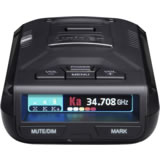Florida Speed Limit Laws
Speed limits in Florida are governed by the Florida Vehicle Code Sec. 316.183. This section of Florida statutes contains relevant laws and regulations regarding speeding and speed limits.
How fast can you drive in Florida, and what are legal speed limits in this state? Let’s take a quick overview of Florida speed limit laws.
Standard Florida speed limit laws:
- 20 mph: school zones
- 30 mph: urban district or street
- 55 mph: all roads and highways unless otherwise posted
- 60 mph: two-lane sections of highways and freeways
- 70 mph: freeways, interstate highways, and other roads if posted
Always watch out for local speed limit traffic signs! This overview of Florida speed limits above is based on general state laws. Every municipality, county, town or specific road can have different regulations and restrictions. This means you must always keep an eye on traffic signs with posted speed limits which supersede these standard state laws.
Other speed limit laws:
Absolute speed limit
In Florida, the so-called “absolute speed limit” is applied. This means that by driving any faster than permitted or posted on signs, you are in violation of the law. Speed measuring devices (“lidars”) are not 100% accurate, which is why you should always drive slightly under the legal speed limit.
Basic speeding laws
In addition, basic Florida speeding law prohibits driving at a speed which can be deemed unsafe. According to Florida Vehicle Code Sec. 316.183(1), drivers must not drive faster than is “reasonable and prudent under the conditions and having regard for the actual and potential hazards then existing“.
This means that even if a posted speed limit is 55 MPH, you can be in violation of Florida’s basic speeding laws if you drive 55 MPH at night or during bad weather. Many other states have similar legislation.
Minimum speed limits
Florida Vehicle Code Sec. 316.183(5) states that “No person shall drive a motor vehicle at such a slow speed as to impede or block the normal and reasonable movement of traffic, except when reduced speed is necessary for safe operation or in compliance with law“. This means drivers are not permitted to block or otherwise impede the normal flow of traffic.
Additionally 316.183(2) regulates that minimum speed limit on all highways with 4 or more lanes is 40 miles per hour. In case the posted speed limit is 70 mph, the minimum speed limit is 50 mph.
Speeding Penalties:
Driving over speed limit in Florida has different penalties and fines. First time violators are typically fined between $25 and $250, but can also have their driver license suspended for 30 days. Exact amounts may be different in each county.
Driving no more than 5 mph over legal speed limit in Florida state is typically considered within the margin of error and you should not get a traffic ticket for it. Most law enforcement officers will not pull you over for exceeding speed limits by less than 5 miles per hour, especially on non-urban areas.
In addition to speeding fines, additional surcharges or costs and driver license penalty points may also be issued.
All fines and penalties may increase in case you have been convicted with another speeding violation in the past. Additional traffic violations observed during speeding may also increase penalties. Furthermore, the penalties may be more severe in case your speeding violation occurred in a school or construction zone.
Excessive speeds may result in other legal trouble based on Street Racing Laws or Reckless Driving Laws. Driving 30 mph over legal or posted speed limits is often considered reckless driving, which can carry harsh fines and even jail sentences. Florida does not specify exact speed limit for reckless driving, as it depends on specific circumstances.
Sources and references:
- Florida Statutes, Title XXIII: Motor Vehicles, Chapter 316: State Uniform Traffic Control, 316.183: Unlawful speed
- Florida Drivers Association: Florida Speed Limits
- Florida Department of Transportation: Frequently Asked Questions – Speed Limits





